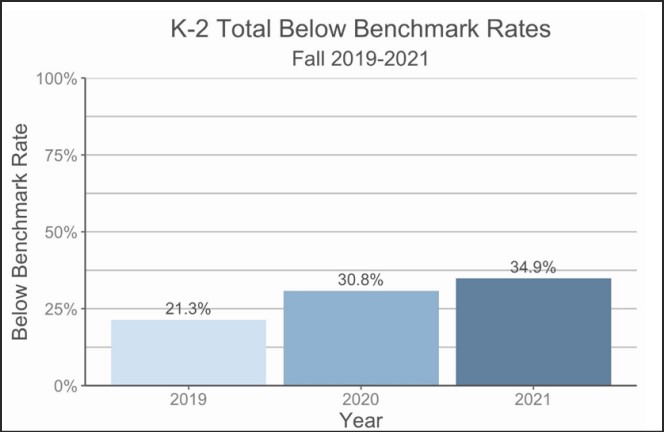Governor Glenn Youngkin is getting an inkling of how difficult it will be to reform Virginia’s public school system. The Virginia Association of School Superintendents (VASS) has issued a letter criticizing the administration for its action two weeks ago of deleting from the Virginia Department of Education website any references to “divisive language” — mainly references to policies and guidelines premised on the idea of society as divided between White oppressors and minority victims.
“School division superintendents, along with their communities, know best their curriculum, personnel, and student services, and they believe that gross assumptions have been made, without evidentiary support,” stated the letter addressed to Superintendent Jillian Balow.
Meanwhile, a report just issued by the University of Virginia education school — with abundant evidentiary support — highlights the disastrous impact of the shutdown policies pursued by many of the very same school superintendents during the COVID epidemic. While individual school systems had released data on reading assessments of kindergartners, first graders and second graders, the new report is, I believe, the first detailed statewide review.
The conclusions are grim. Data from the Phonological Awareness Literacy Screening (PALS) assessments found that the percentage of children in those three early grades who fell short of basic reading benchmarks rose from 21.3% in 2019 to 34.9% in 2021. The percentage was highest (42.2%) for second graders.

Furthermore, while reading skills deteriorated for all demographic groups, the below-benchmark rate increased most for Blacks, Hispanics, English learners, economically disadvantaged, and students with disabilities.
“Overall K-2 scores indicate the highest percentage of students scoring below benchmark at grade-level entry ever observed at the fall assessment,” stated the report, “Examining the Impact of COVID-19 on the Identification of At-Risk Students: Fall 2021 Literacy Screening Findings.”
“As the spring semester and end of the 2020-21 school year approach,” the report continued, “it is important to consider that student literacy learning is not yet ‘back to normal.’ By and large, below-benchmark rates are still moving in the wrong direction.”
The report vaguely attributes the reversals to “disruptions” caused by the COVID-19 pandemic. It made no effort to differentiate between school districts that stayed open, those that adopted “hybrid” policies, and those that shifted entirely to remote learning. But national studies have shown that the correlation between school closings and lost learning is crystal clear.
While many Virginia school superintendents were decrying systemic racism and implementing Woke training programs and curriculum overhauls, their school-closing policies actually accentuated the divide between Asians and Whites on the one hand and Hispanics and Blacks on the other. The more Woke the schools, the greater the disparity.
One can search the VASS Legislative Positions page for any mention of this catastrophic failure. The VASS platform is basically a Woke call for more state money. The document acknowledges no failing on the part of the school superintendents themselves. The superintendents (at least those who dominate VASS and purport to speak for all 133 school systems) evidently have learned nothing and remain as committed to their ideology as ever.
Reforming Virginia’s public schools is going to be a long, hard slog.


Leave a Reply
You must be logged in to post a comment.